Water No Get Enemy: Counter-cartographies of Diaspora describes the ongoing research of Remi Kuforiji, one of two inaugural residents from the Royal College of Art's Association of Black Students, Alumni & Friends (RCA BLK) at G.A.S. Foundation. Starting in 2021, the multifaceted project has taken various forms including installation, Illustration and film. The project aims to develop a model of resistance to crude oil extraction and ecocide in the Niger Delta. By learning from indigenous epistemologies archived in Nigerian masquerade, the project proposes a new masquerade: a method of cartography that critiques harmful extractive practices by bringing multiple diasporic sites into dialogue through performance.
Through conversation and collaboration with activists, artists, architects, researchers and performers from Nigeria, Water No Get Enemy proposes an innovative method of analysing resource relations between extractors and sites of extraction; collapsing time and distance between these two worlds. This is a call to rethink our relationship to resource use; reassess the ramifications of extractive architectural technologies; and renew our relationship to indigenous knowledge as a serious form of spatial practice.
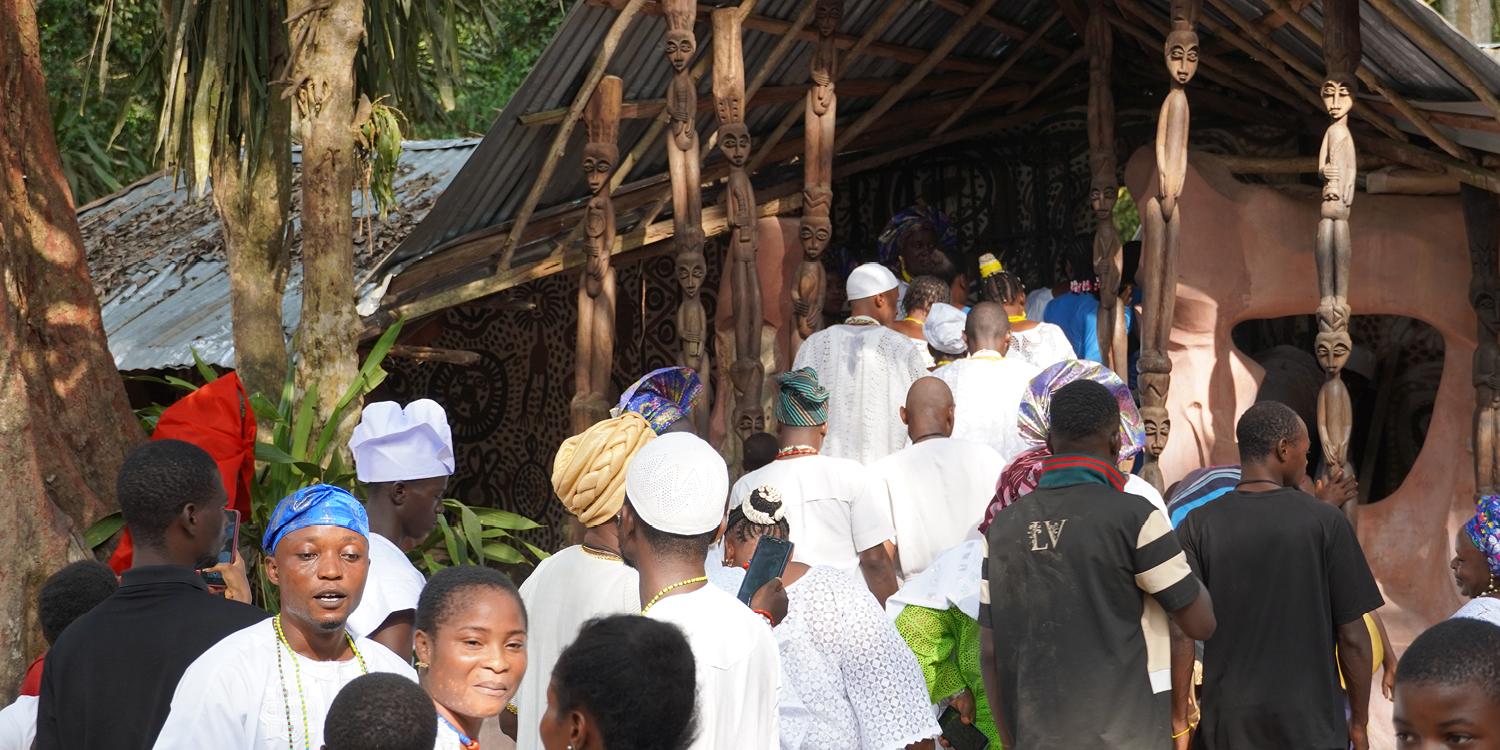
Scene from Remi's visit to the Osun-Osogbo Sacred Grove, where preliminary rituals are taking place towards the annual Osun-Osogbo festival
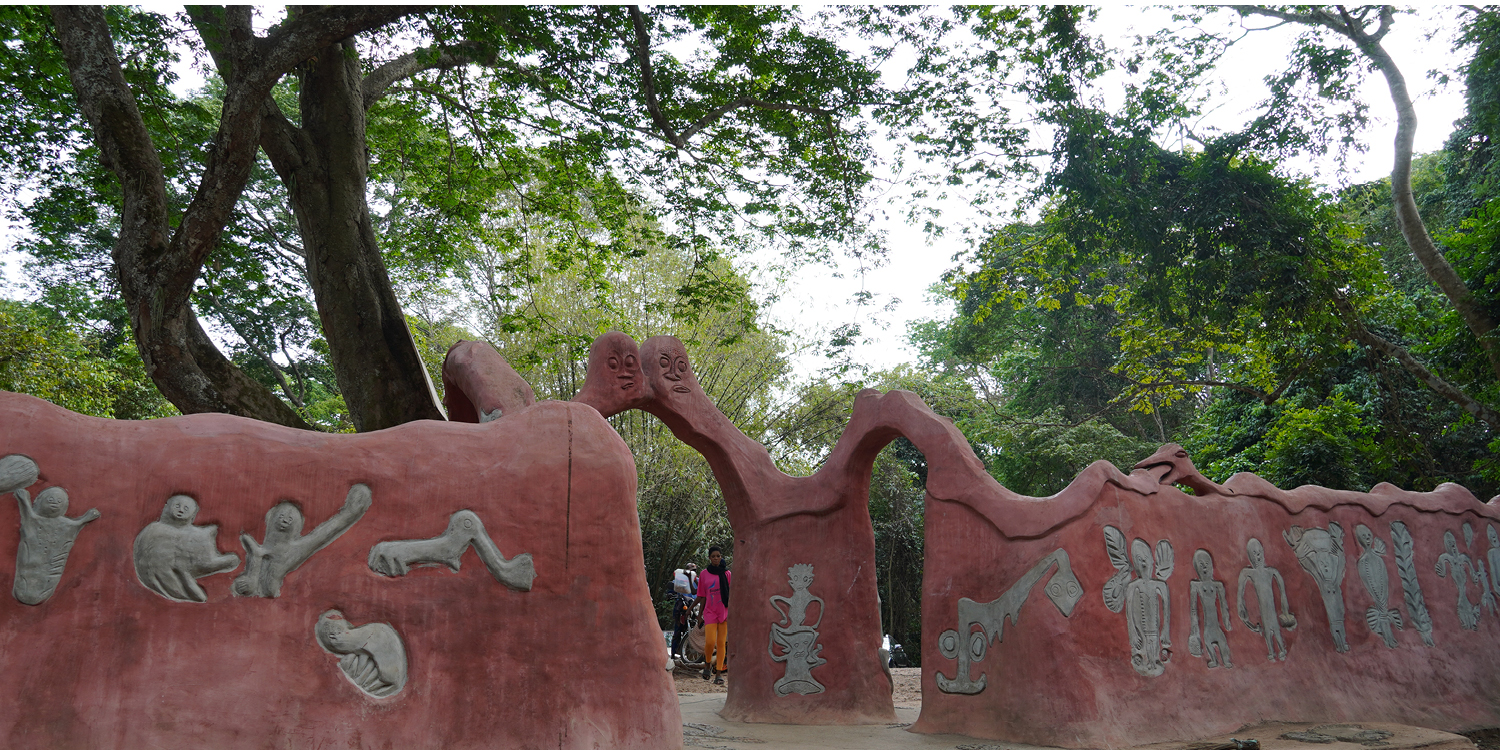
Scene from the Osun Oshogbo Sacred Grove
Through his residency in Nigeria, Remi took research trips as a means of enriching and building on existing knowledge. He was able to participate in visits to cultural sites across the South-West, including Ile-Ife, the ancestral home and sacred birthplace of humanity according to Yoruba mythology, and the Osun-Osogbo Sacred Grove, home of the revered deity Osun, and the birthplace of the New Sacred Art Movement. He also toured Lagos Island discovering masquerade practices of early settlers in this community, and the Afro-Brazillian culture entrenched in the area since the abolition of the Trans-Atlantic slave trade triggered a mass return of former slaves from South America, Europe, and Sierra Leone.
The latter culminated in Playful Preservation, a workshop and discursive symposium hosted by Remi at G.A.S. Lagos centred around collectively uncovering alternative realities and approaches to preservation through collaging, drawing, and experimenting on top of archival and current photographs of Afro-Brazilian architecture in Lagos. Participants were also invited to play a prototype of Anti-Monopoly: Brazilian Quarters - a board game devised by Remi where players win by preserving the most Afro-Brazilian buildings in Lagos Island.
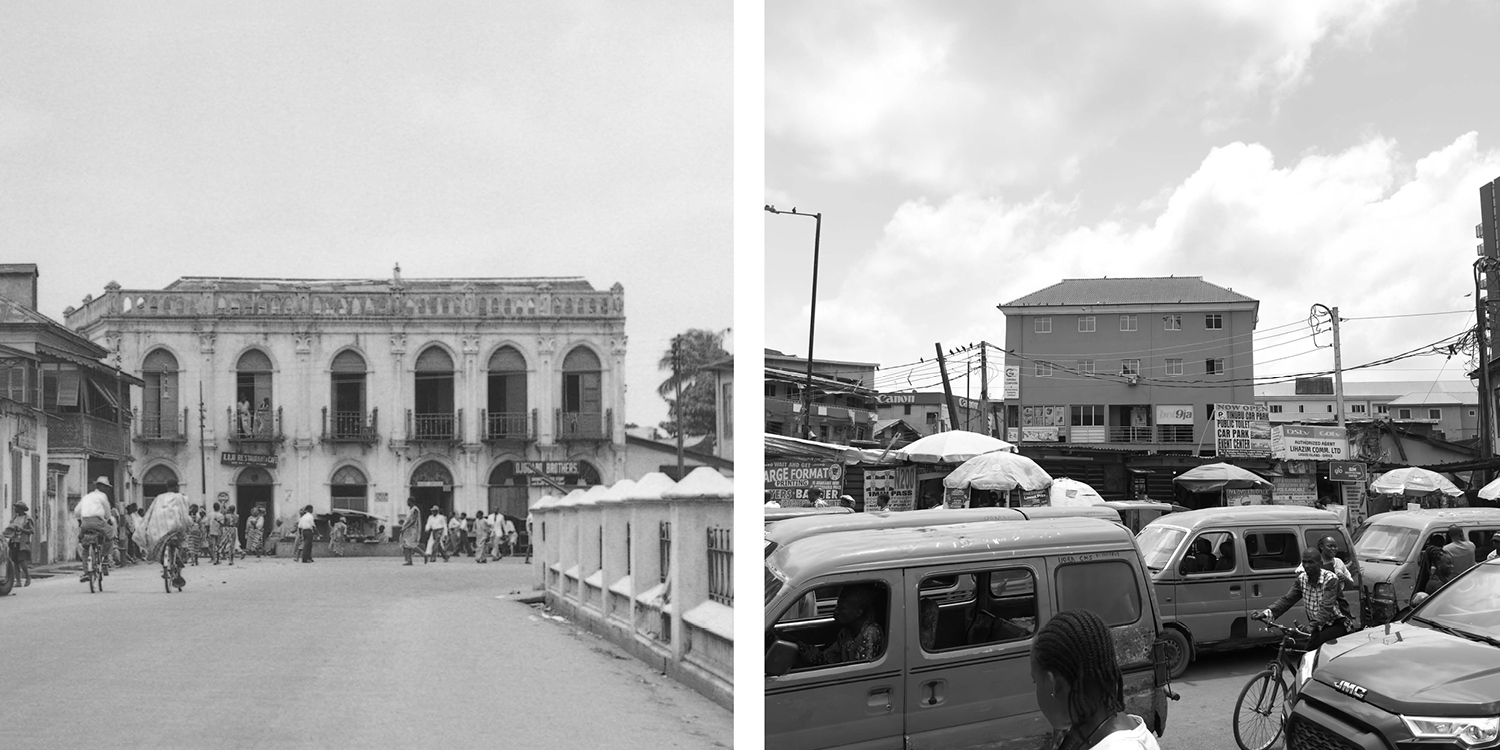 L - Archival image of Ilojo Bar, R - Site of Ilojo Bar following its demolition. The Afro-Brazilian building was built in 1855 and infamously demolished in 2016. Photos courtesy of Remi Kuforiji.
L - Archival image of Ilojo Bar, R - Site of Ilojo Bar following its demolition. The Afro-Brazilian building was built in 1855 and infamously demolished in 2016. Photos courtesy of Remi Kuforiji.
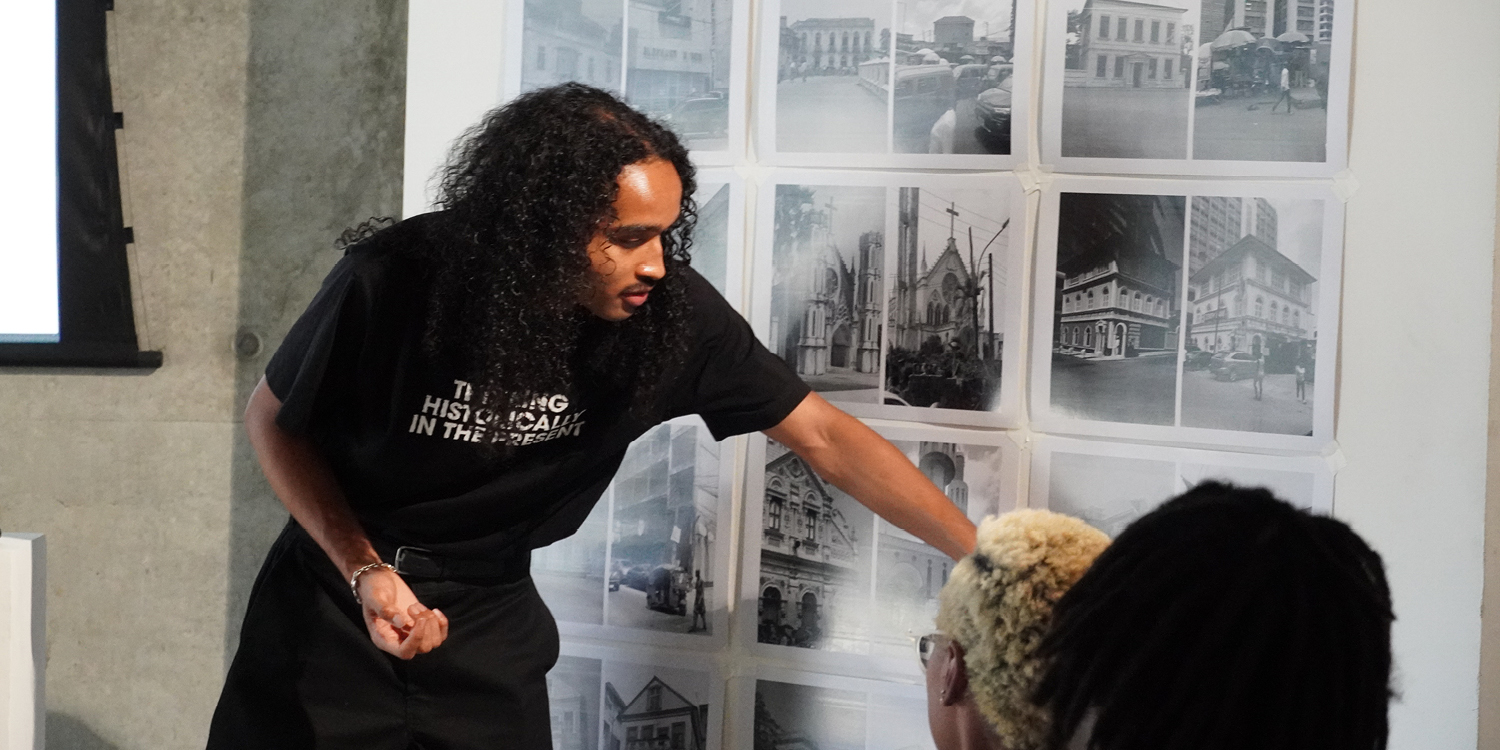
Remi Kuforiji presenting his photographic body of work showing archival images of Afro-Brazillian Architecture in Lagos alongside contemporary images of the current states of those sites.
 Event guests playing Anti-Monopoly: Brazilian Quarters
Event guests playing Anti-Monopoly: Brazilian Quarters
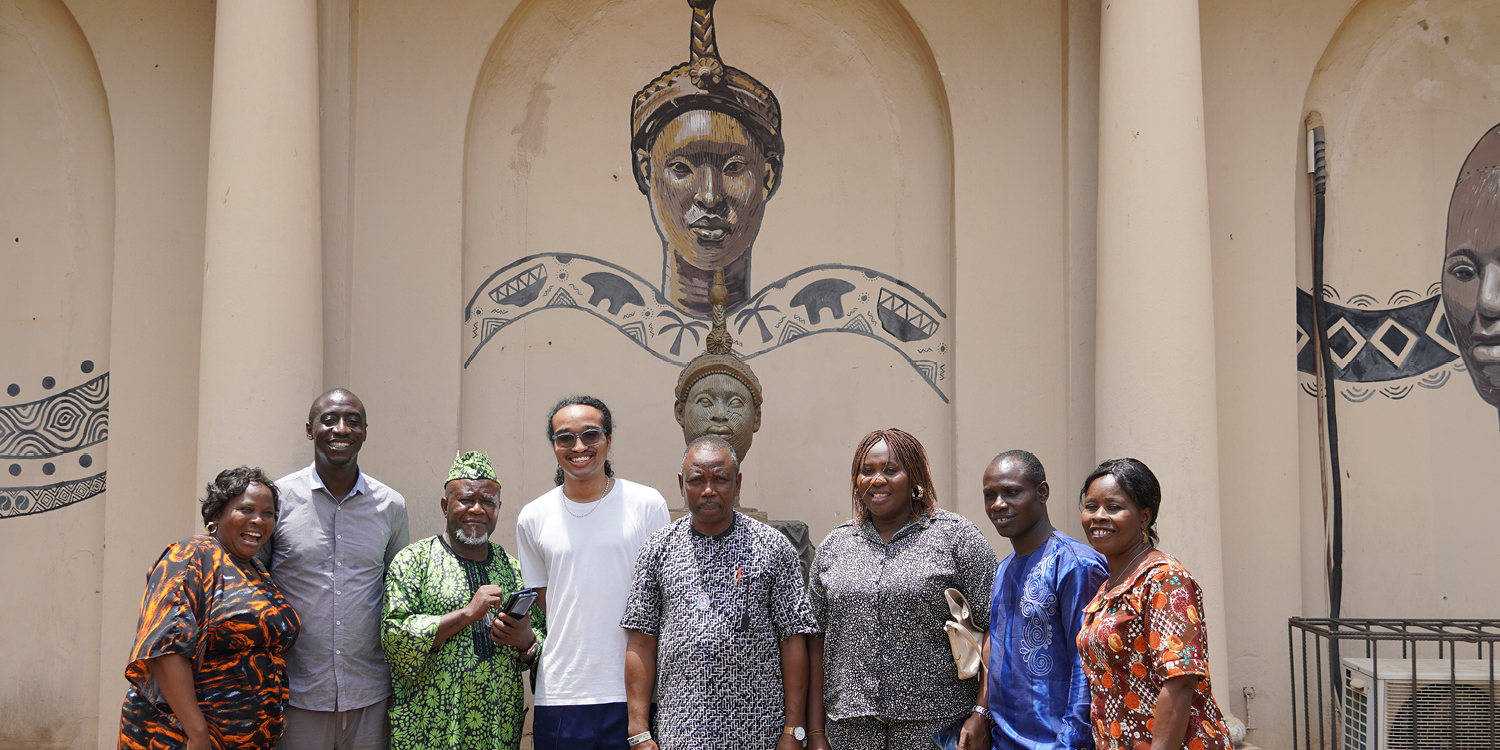
Group photo with Museum staff at the National Museum, Ile-Ife.